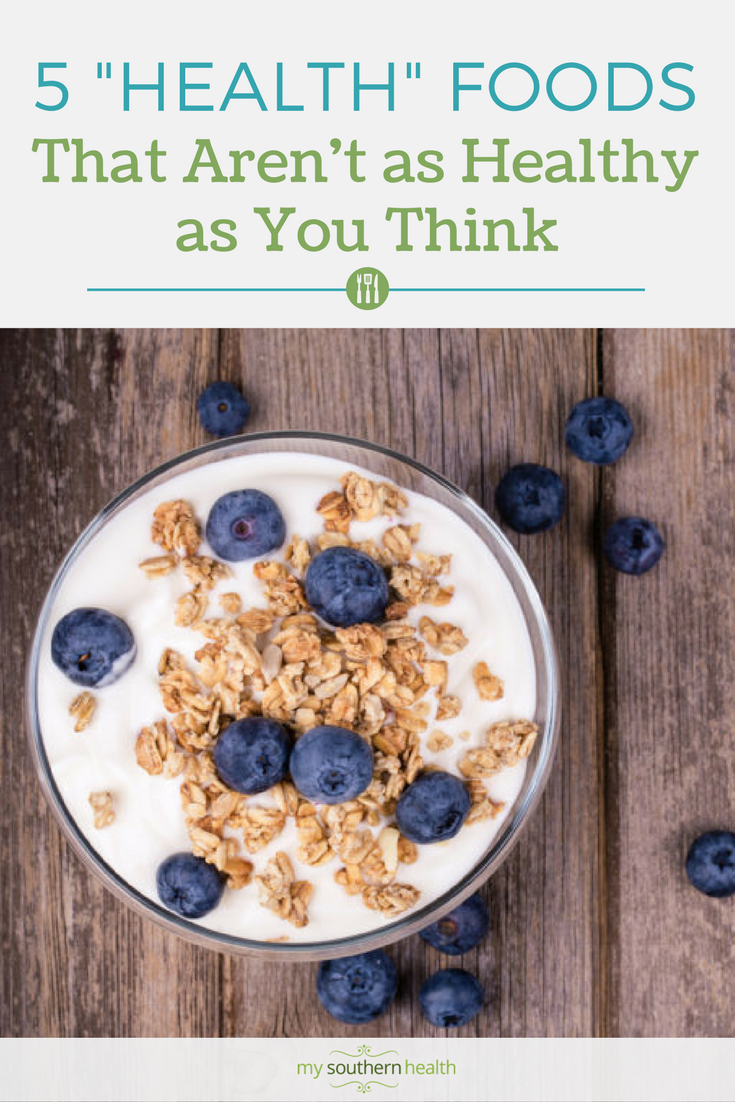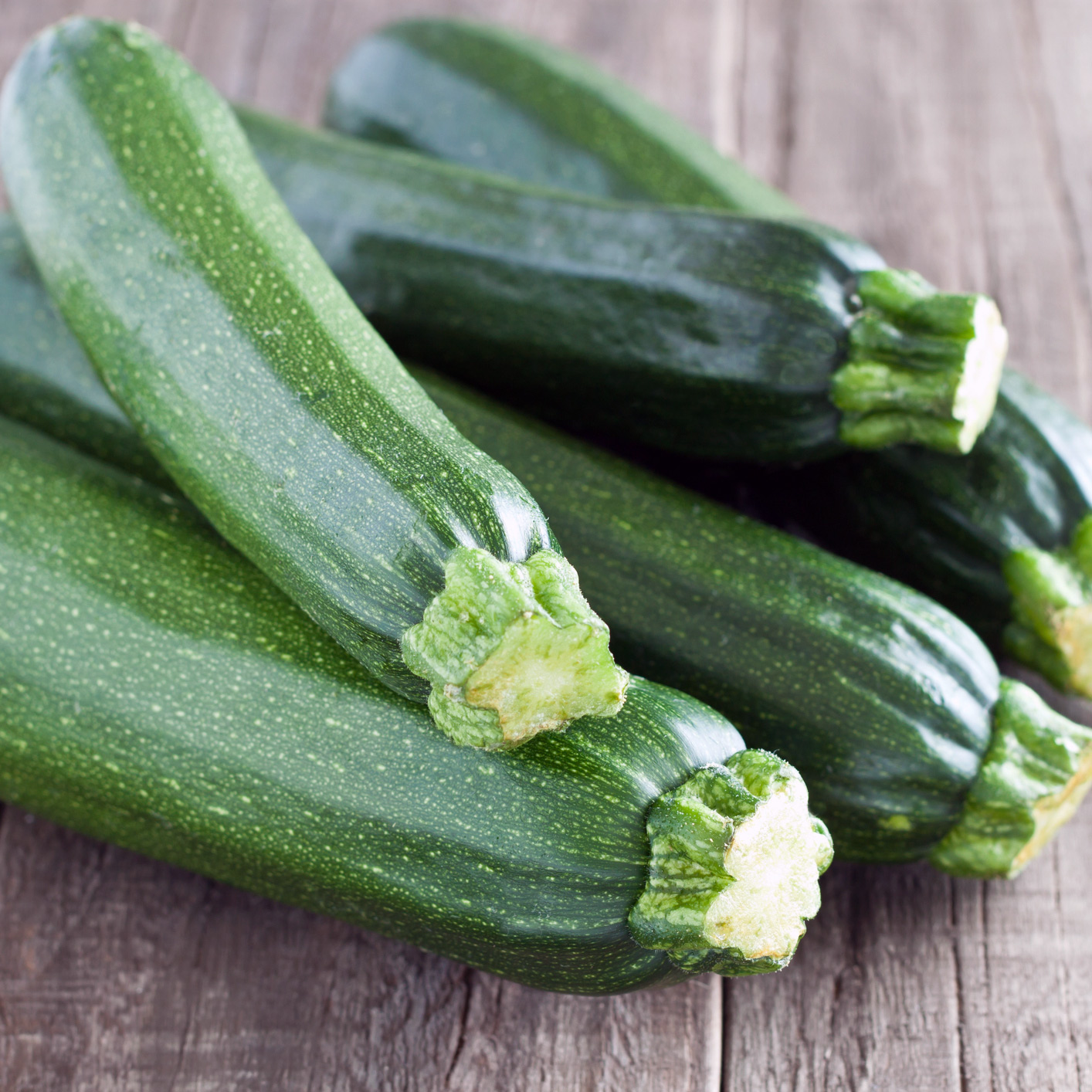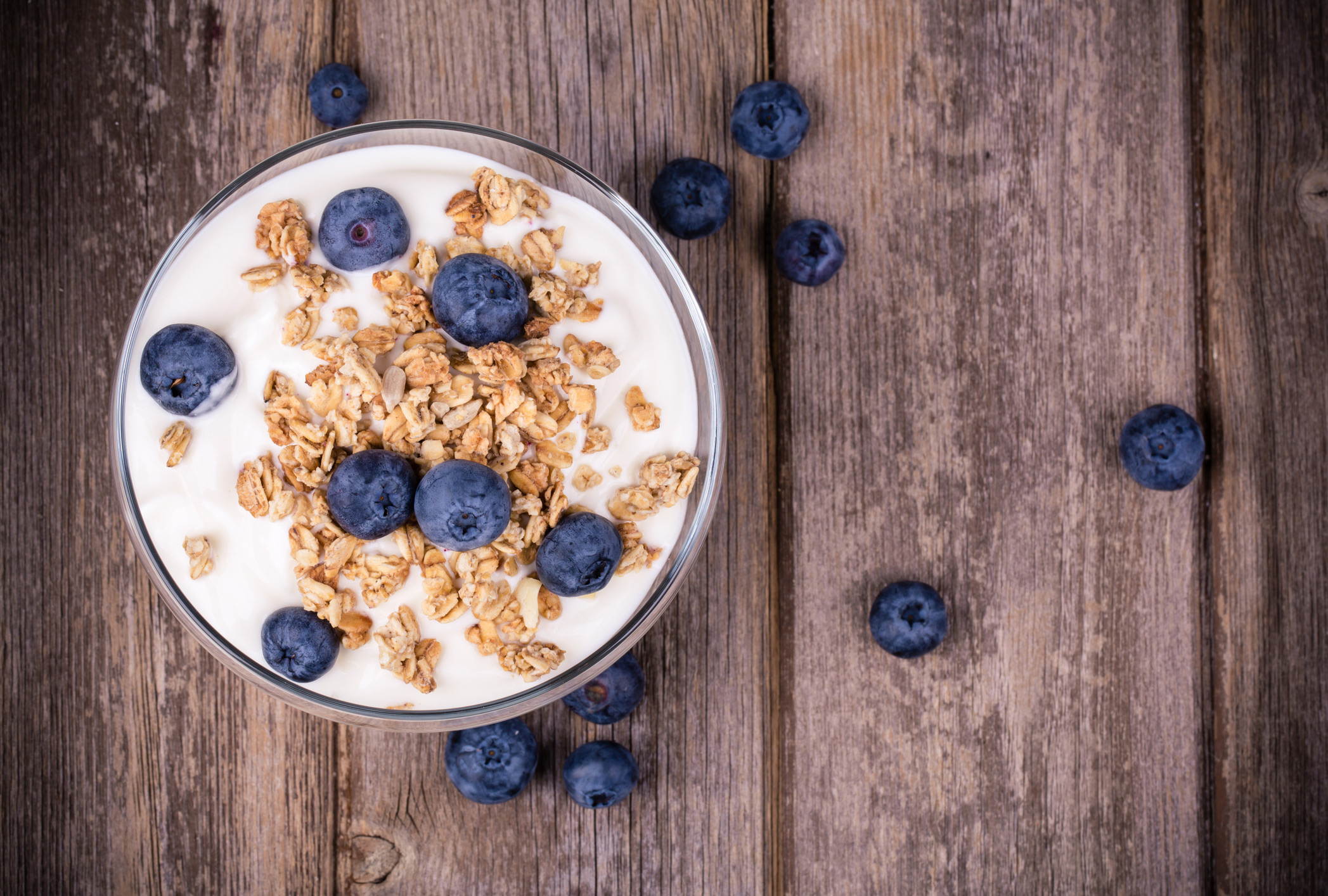Take some time to read the fine print on even foods considered healthy.
Health food is a hot topic. In our kitchens, on the phone with friends and in the break room at work, we talk about which foods will help up lose weight and improve digestion. Where do we get our information? It comes from many sources– from the morning paper, to the blog you read at lunch, to the packaging on your favorite foods at the grocery store.
These different sources make it difficult to decipher health food from the hype. As a result, many of us are eating foods we think are healthy, but aren’t. Here’s a look at five health foods that might not be as healthy as you think and why.
1. Granola
While this is a whole-food, nutrient-dense breakfast option (rolled oats, nuts, dried fruit), most commercially sold granola has a very high sugar content. As a result, a lot of people unknowingly eat 100 percent of their daily sugar allowance during breakfast. What to do as an alternative? Look for pre-packaged granola made with a natural sweetener or even unsweetened. Better yet, save on both sugar content and money by making it at home.
2. Yogurt
Many people try to incorporate yogurt into their diets for a good source of calcium and healthy bacteria. Yogurt contains probiotics, the good bacteria in your intestinal tract, which helps regulate digestion. Most commercially available yogurts have a considerable amount of added sugar. When sugar is added, the live cultures feed off of the sugar, which makes them less active and therefore less beneficial in the body. Instead of reaching for commercially sweetened yogurt, try plain yogurt and add your own fruit, honey or other natural sweetener.
3. Fat-free products
When fat is removed from foods, salt, sugar and/or flavor enhancers are typically added to make them taste good. Since the fat-free craze began, weight-loss statistics will show us this approach doesn’t necessarily work. Choosing foods that are not claiming to be fat-free are likely to be more nutrient dense and satisfying. Don’t be afraid of foods that contain healthy fats that they body needs. Examples include avocados, salmon, walnuts and peanut butter.
4. Gluten-free products
Gluten is the protein found in the wheat family of grains. In recent years, the rise of people with sensitivity to gluten has increased. For a food to be gluten-free, it must be made without any ingredients containing wheat. Packaged foods are now making claims to be gluten-free and are becoming more prevalent in grocery stores; however, the claim itself doesn’t mean a food is healthy. For example, a gluten-free brownie is still a brownie, it’s just made without wheat and should be considered a treat and not a health food. When shopping, make sure you aren’t purchasing too many snack foods just because they are labeled as gluten-free.
5. Flavored water packets
The human body is made of roughly 70 percent water. It is the most basic, foundational thing needed for our bodies to function properly. The importance of hydration can’t be stressed enough, however, many people rely on flavored water packets to hydrate. Most of these packets contain artificial flavors, colors and sweeteners and the body must filter them out. There is no getting around the fact that plain water is the best way to go. When making the switch, you can try experimenting with “self-flavored” water recipes using berries, melons, citrus fruits, or herbs.
Source: Osher Center for Integrative Medicine


If you have questions or would like to learn more about the Nutrition Counseling program offered at Vanderbilt’s Osher Center for Integrative Medicine, call 615-343-1554.

